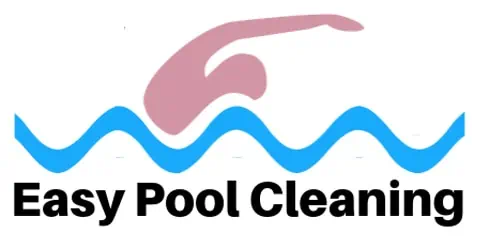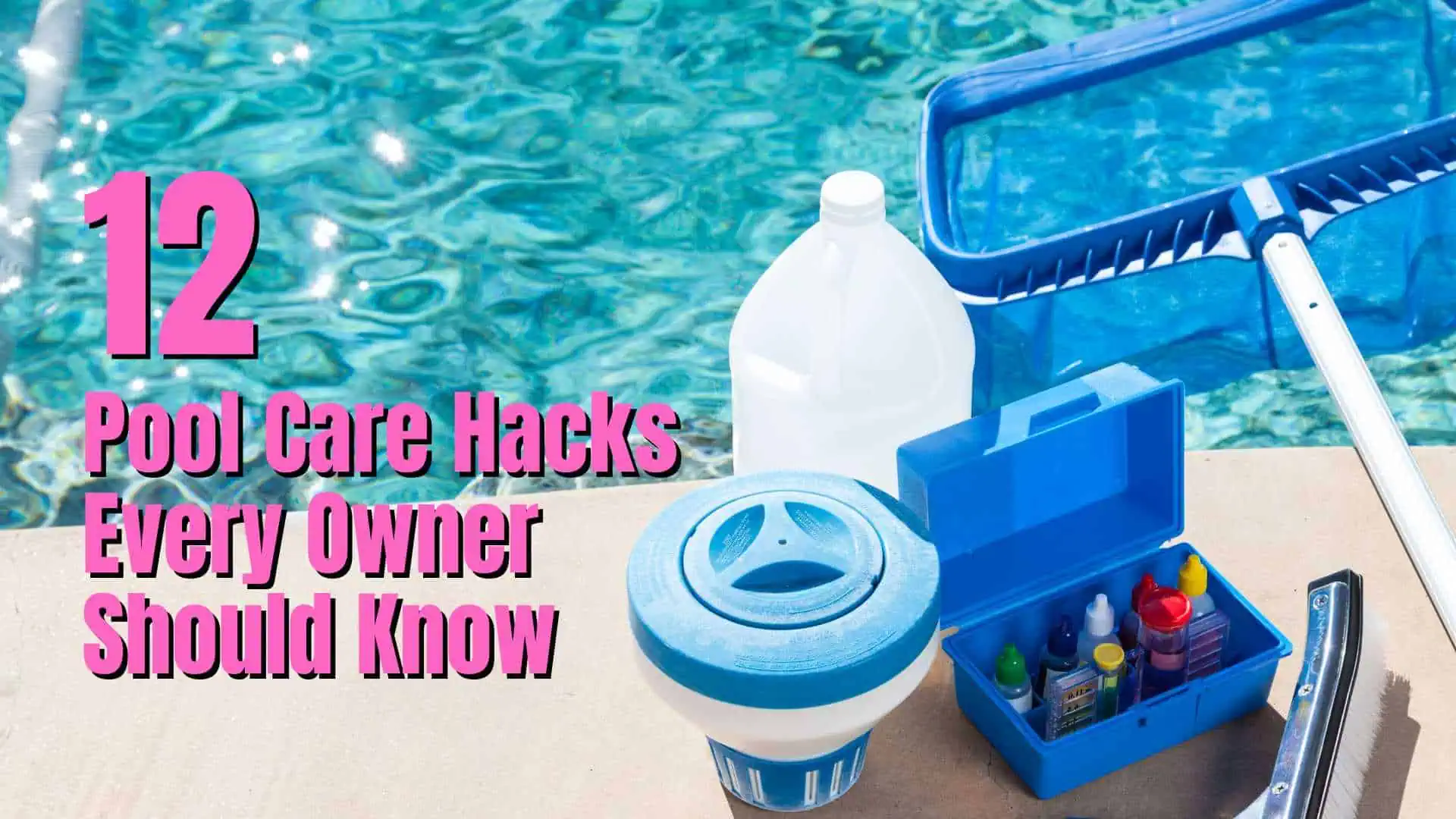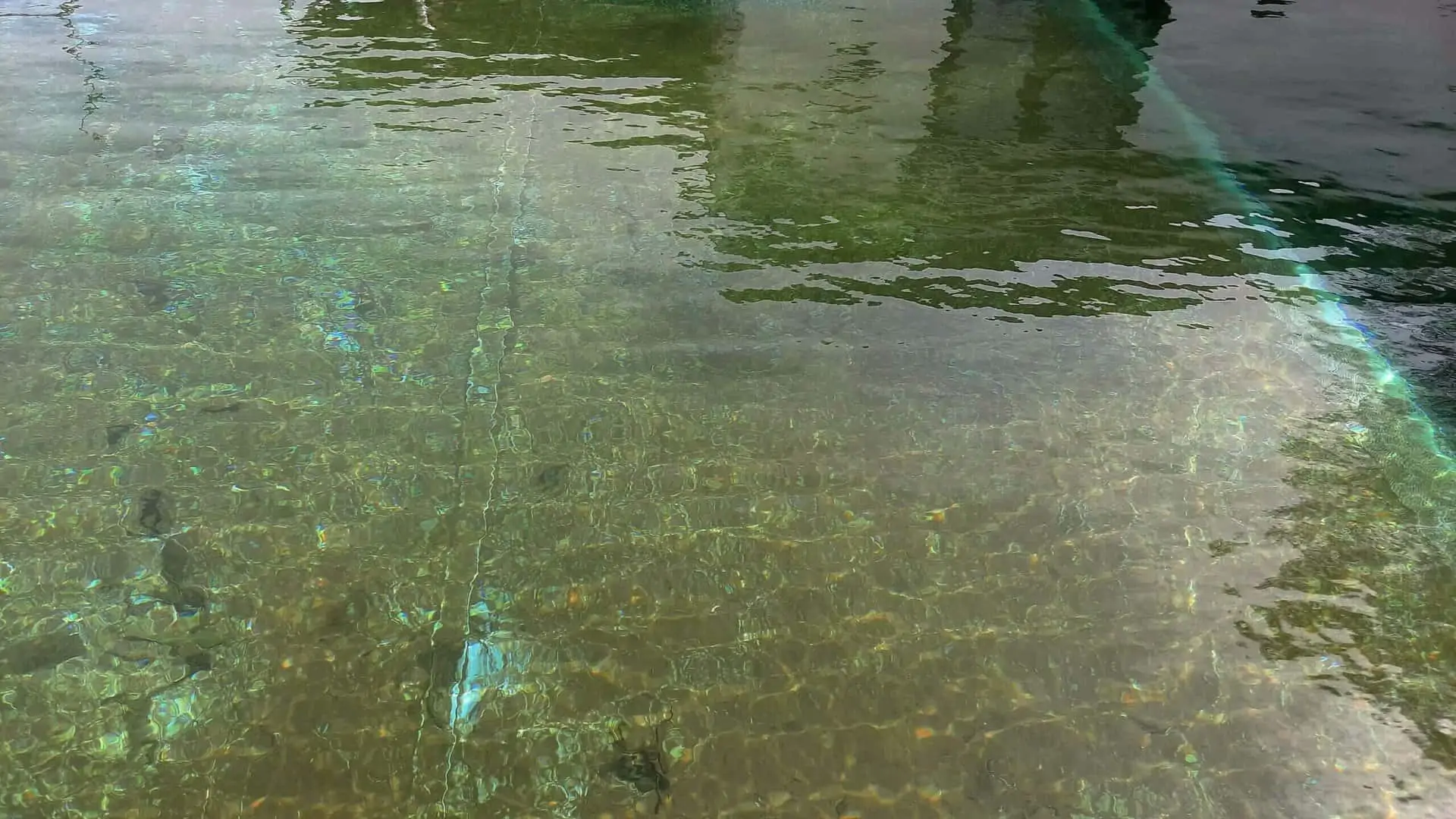Battling algae dust in your pool can be challenging, turning your sparkling oasis into a cloudy mess.
But don’t worry—getting rid of it is easier than you think – using the right method!
Below, I will explain the method I use, which works every time and gets my pool sparkling again.
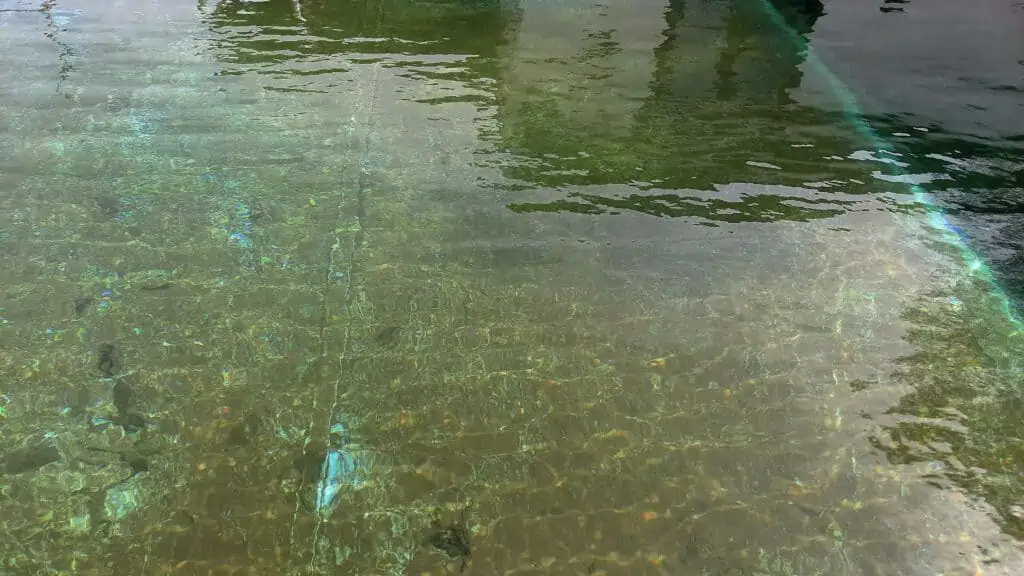
What is algae dust?
Algae dust is dead algae that the chlorine sanitizer you used to shock has killed in the pool. Although live algae are normally green (or yellow), they turn dark brown when they die.
Algae dust is very fine and settles at the bottom of a pool, making it look uninviting.
What does dead algae look like?
Algae dust in pool water resembles dark brown sludge accumulating on a swimming pool’s bottom. However, examining it in detail, it comprises thousands of tiny dead algae particles.
You can tell whether it is algae dust or just dirt by trying to pick a little up between your fingers. If you pick it up easily, then it is probably dirt (which is relatively dense). If you find it hard to pick anything up as it moves as soon as you try, it is undoubtedly algae dust (which is very fine and light).
Read on to learn how to eliminate dead algae in the pool.
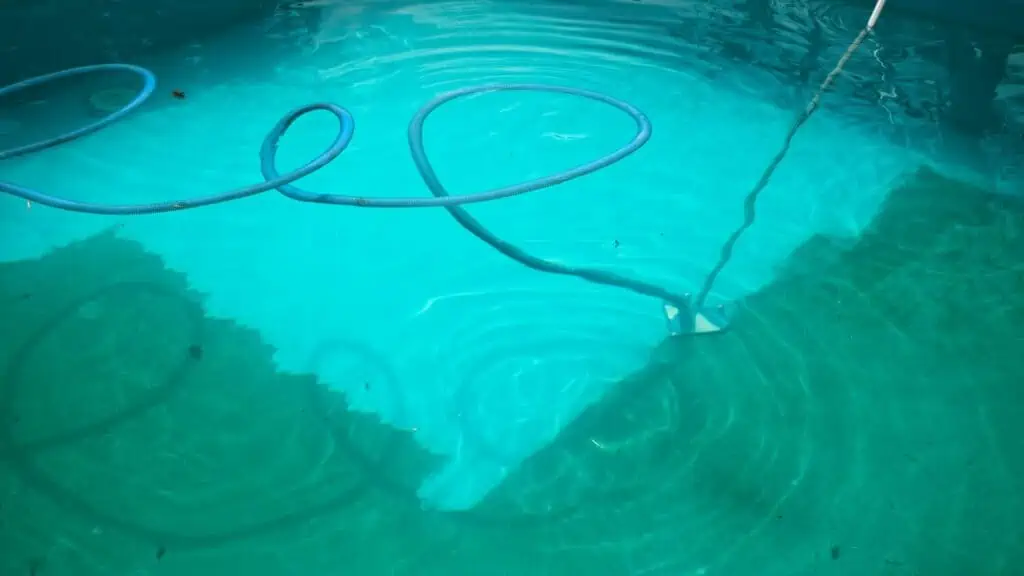
How do you remove dead algae from the pool bottom?
There are two problems when it comes to how to get rid of algae dust in pool water:
- Since algae dust is very fine and light, it is very easily disturbed when cleaning, causing it to go into suspension in the pool water and then resettle some time later. This then requires further cleaning.
- As algae dust is so fine, if it is sucked into the pool’s filter, there is a good chance that it will pass through the filter (either a sand filter or cartridge filter) and will then be pumped back into the pool to settle back on the floor of the pool.
The best way to get rid of the algae dust in one go is to vacuum using your pool vac but with the pool filter lever set to the “waste” position rather than on the “filter” system (known as vacuuming to waste.”
This means that the water you vacuum will be expelled from the pool rather than passing through the filter and returning into the pool.
My method of removing algae dust using a pool vacuum
These steps will show you how I get dead algae out of my pool quickly and in one go:
- Top up the pool water. When you vacuum to waste, the water level will drop quickly since the water is expelled from the pool’s system. To allow for this, you should raise the water level well above normal using a garden hose before vacuuming. Leaving your garden hose running into the pool while vacuuming is also a good idea.
- If there is algae dust on the rungs of your pool ladder, steps or any other flat pool surfaces above the bottom of the pool, gently use a pool brush to sweep these to the pool floor.
- Set up the vacuum using the vacuum head, pole and vacuum hose, then insert the free end of the vacuum hose into a pool skimmer or a dedicated pool port if you have one.
Tip: Ideally, do not use a vacuum head with brushes, as these will tend to disturb the algae dust before it gets vacuumed up. Instead, use a flexible wheeled vacuum head (see below), as these will not disturb the algae dust as much if you take care of it. - Set the multiport valve of the filter to the waste position and switch on the pool pump.
- Start vacuuming, but slowly move the vacuum head along the bottom to disturb the algae dust as little as possible. Any algae dust disturbed will probably float in the pool water and settle again later, which you will want to avoid since you will probably need to vacuum again.
- When you have vacuumed all of the algae dust from the bottom, switch off the pump, disconnect the vacuum, and, if necessary, continue topping up the pool water level until it is at a normal level (roughly halfway up the skimmer opening).
- Now, test your water chemistry and add any chemicals that may be necessary to bring the levels back to normal.
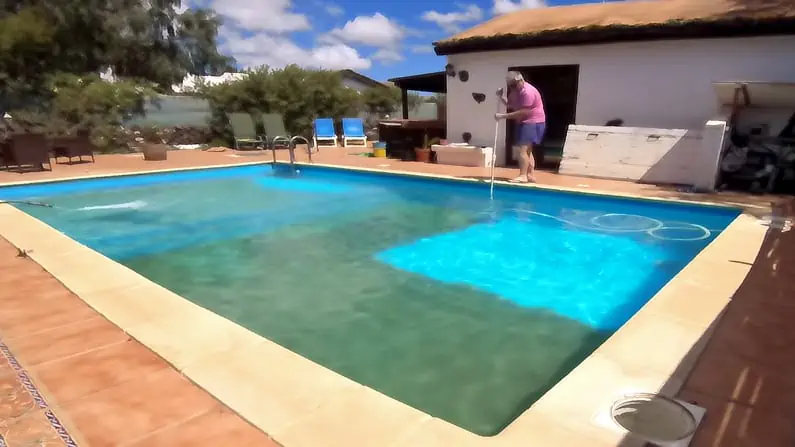
For full details of how to do this, I suggest you read my post Vacuuming to waste – step by step guide or watch my Youtube video How to vacuum to waste.
Best pool vacuum head for algae
FibroPool Professional Flexible Swimming Pool Vacuum Head
Consider the FibroPool Professional Flexible Swimming Pool Vacuum Head for an efficient and convenient pool cleaning experience.
I consider this type to be the best pool vacuum for dead algae.
How to remove dead algae from a pool without a vacuum
I have included this section as many people ask how to remove algae from the pool without a vacuum. However, I am afraid the answer is – with great difficulty.
I am not saying it is impossible, but it is not easy or quick. The biggest problem is that the dead algae/algae dust is very light, so it is very easy to disturb, making it float into the pool water when you remove it.
- First, you can use a pool flocculant, a chemical that binds the dead algae particles together, making them a little heavier and less likely to be disturbed.
- Before removing the dead algae, gently push it into one pool area. Some dead algae will probably get disturbed when you do this, so you must leave it a while to resettle before proceeding to the next stage.
- Then, you can try to manually remove the algae using a leaf net or skimmer with a fine net, carefully scooping out the clumped algae from the bottom. This process can be time-consuming, and you may have to do it more than once to remove it, but it can eventually be effective.
Will a robotic pool cleaner remove algae dust?
I have a Dolphin pool cleaner which does a great job cleaning my pool under normal circumstances. Although it will trap any algae dust it picks up as it cleans (with a set of fine filters in the cleaner), I do not use it when I have algae dust to remove.
The reason is that when a robotic pool cleaner moves around, it pushes out quite a lot of water. This water movement disturbs the fine particles of algae dust, which then float in the water for some time before resting on the bottom of the pool again.
You then have to run the robotic pool cleaner through another cleaning cycle (or perhaps more than one) to remove all of the algae dust finally.
In the long run, it is much quicker to manually vacuum to waste.
Can you use an automatic pool cleaner to remove algae dust?
Automatic pool cleaners generally do not disturb the water too much, but as they clean, they would probably do a good job removing the algae dust.
However, as you would still need to use the waste setting on the filter, the pool’s water level is likely to drop substantially before the pool cleaner covers the entire bottom (or even half of the bottom). So, manually vacuuming to waste would be the best method.
Should you swim in a pool with algae dust?
Because the algae are dead, algae dust may not present a health problem to swimmers. However, because algae dust particles are very fine, swimmers will inevitably disturb them from the bottom as they swim, so the pool will soon become brown and cloudy.
You should, therefore, clean the pool using the method above before swimmers are allowed.
Pool Care Handbook and Video Course
When I bought my house with a swimming pool, I knew absolutely nothing about pool care. I just winged it for a while, making many mistakes along the way.
Fortunately, I was recommended Swim University’s Pool Care Handbook and Video Course. I bought it and it was an absolute game-changer.
It was the best money I spent that year. I learned everything from basic cleaning to advanced troubleshooting. Swim University offers a no-quibble refund policy too so what do you have to lose?
Further reading
Too much algaecide in the pool
Can you swim 12 hours after shocking pool
Algae dust FAQs
What causes algae dust in the pool?
Algae dust is dead algae that settles on the bottom of a pool after treating a green pool with shock to kill algae.
Will a sand filter catch algae dust?
Dead algae particles are very fine, so it is extremely unlikely that a sand filter will be able to trap them. If a pool with algae dust at the bottom is vacuumed on the filter setting, it will pass through and end up back in the pool. To remove algae dust, vacuuming to waste is the best method.
How do you clean dead algae from the bottom of the pool without a vacuum?
If you cannot vacuum, removing dead algae dust from the bottom of a pool will be extremely difficult. You could try to scoop it up with a very fine pool net, but you will probably disturb more than you pick up, which will eventually settle back on the bottom of the pool.
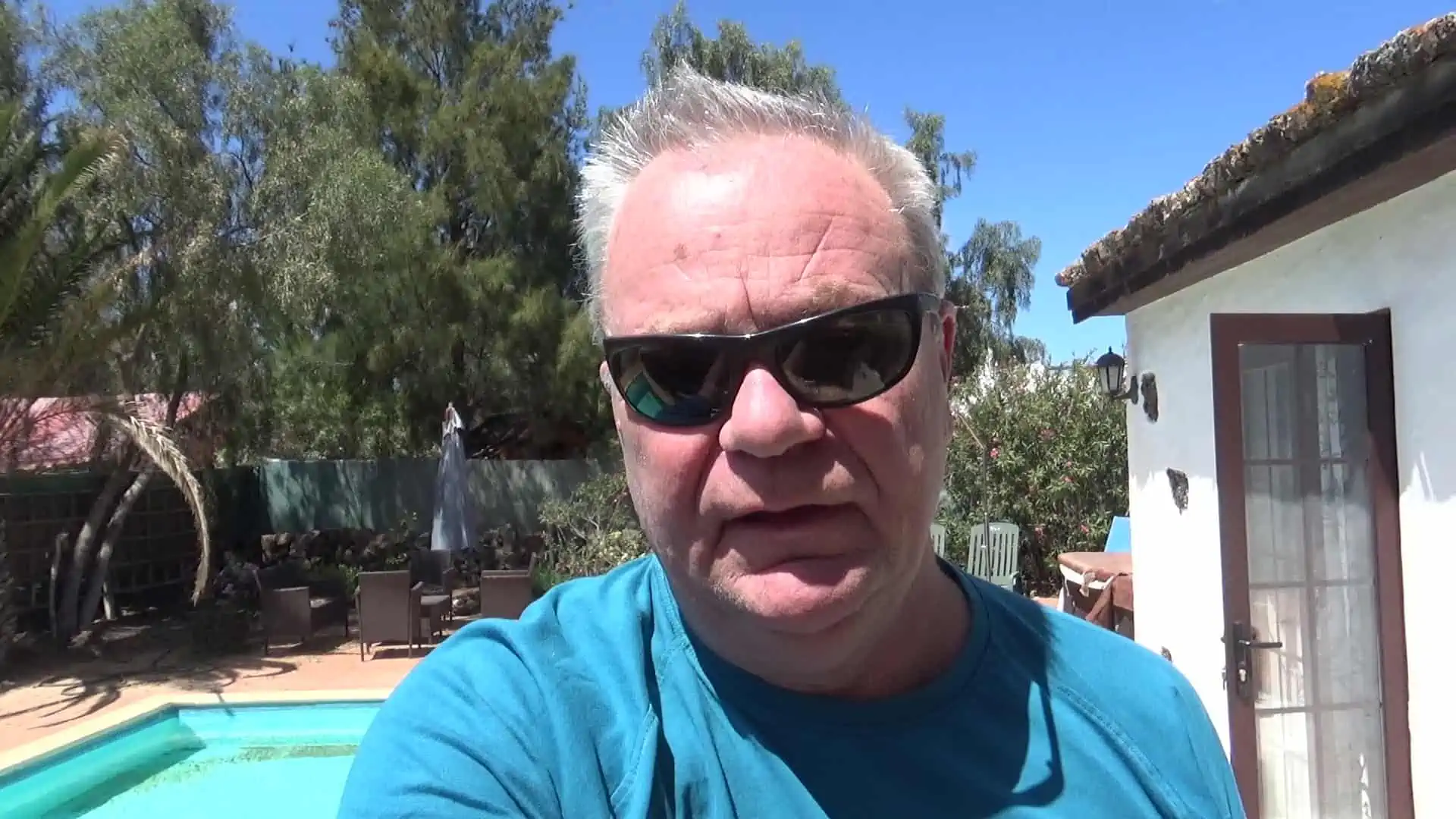
I have had hot tubs for over 20 years and a pool for the last 10 years. I had to learn how to clean, maintain and fix them the hard way. Since then I have helped many friends and neighbors with their pools and now I want to share everything I have learned with you. About Me
